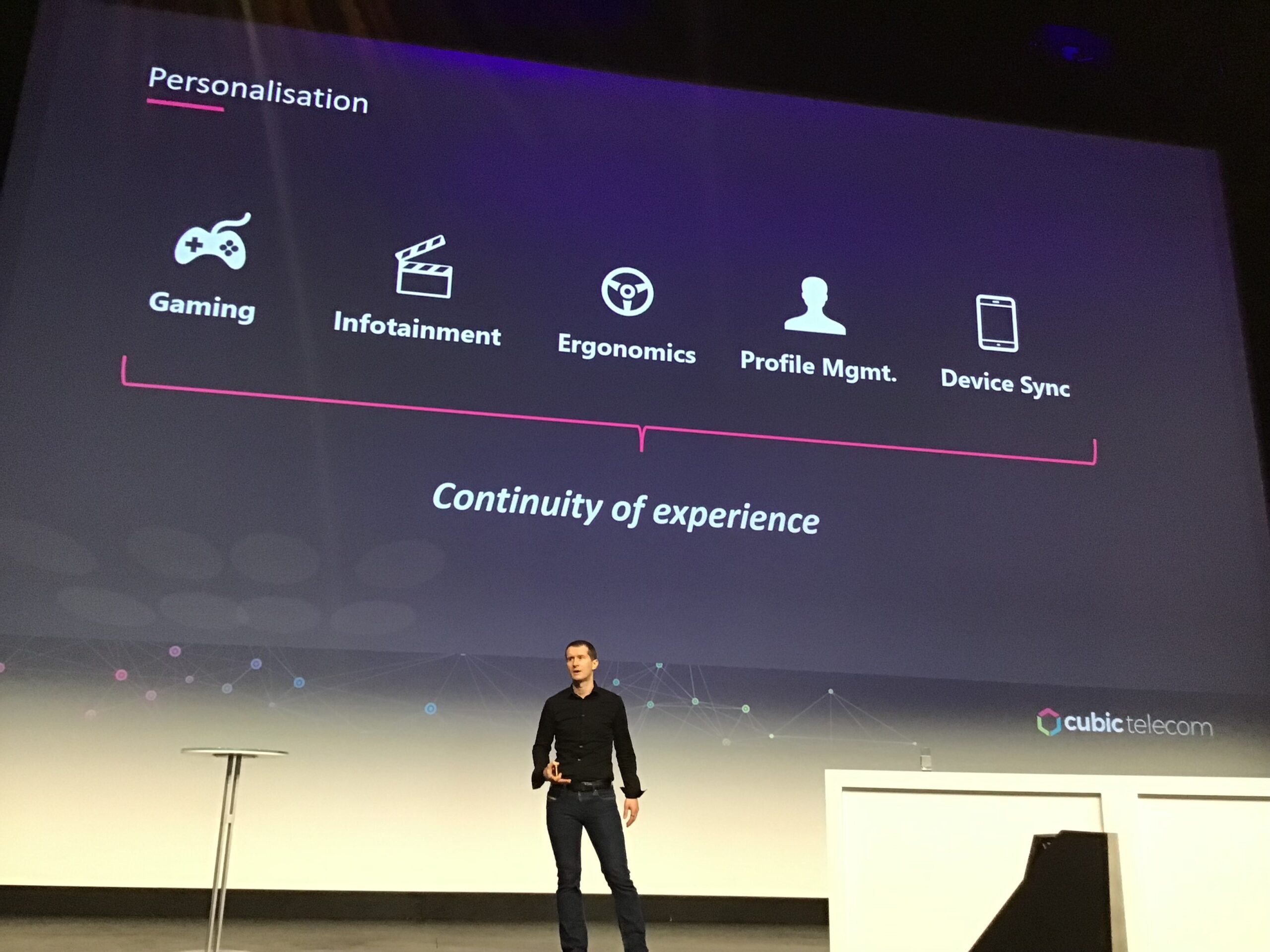2022 marked the first time connected vehicles outsold unconnected ones. By 2030, 96% of vehicles shipped worldwide will be connected – a 100% increase on 2020.
This growth will largely be driven by ADAS, navigation and infotainment services – which are themselves increasingly driven by consumer expectations around seamless connectivity.
And while connectivity and software-defined vehicle development are transforming the auto industry at a rapid pace, as Cubic CTO Nick Power observes, they’re opening up a new set of challenges too.
Speaking at the Munich Car Symposium 2023, Power explored some of the ways in which software-defined vehicle development has ramifications beyond the obvious, forcing car manufacturers to walk a fine line between embracing tech partnerships and retaining ownership of the customer experience – without alienating them.
The automaker’s dilemma
“The car industry is at a crossroads now,” says Power. “Ownership of the in-car experience is becoming the next tech battleground. Google, Amazon, Apple and other established tech giants are all expanding into automotive, with more likely to follow. This creates a dilemma for car manufacturers: do they let the tech companies in, or go it alone?”
On the one hand, Power points to the significant expertise the tech giants have in building user-friendly operating systems. “Here, you can see how partnership to develop the car’s OS makes sense. With better integration of apps and services, you can deliver a seamless, intuitive experience.” Leveraging tech-giant expertise could also help accelerate the car development process, says Power, leading to a faster time to market and more agility to meet changing customer demands. “And that’s before we look at access to massive volumes of data that could improve the accuracy of AI-powered systems for predictive maintenance or autonomous driving.”
On the other hand, giving up ownership and control could result in reduced brand differentiation. “If automakers come to depend on third parties for software and operating systems, there’s always the risk of discontinued support, software vulnerabilities outside their control or data breaches. In those instances, customer loyalty can take a significant hit. Inconsistent user experience risks alienating users” says Power. “And all of this is before you factor-in reduced ability to monetize new services or find yourself in a situation where the tech giants begin to view automakers as competitors, leading to reduced collaboration.”
Continuity matters
Whichever route automakers take, continuity of experience will be key. For many customers, cars are becoming just another device – but software failures in cars have the capacity to lead to a much more frustrating user experience than a bad update on a laptop or phone.
As Power observes, complexity can lead to significant issues if not carefully managed – system failures and crashes, incomplete or corrupted software installations, disruption of user preferences or loss of data can all overwhelm and frustrate users. “Automakers are used to 3-7 year production cycles. Managing this in a world where technology becomes obsolete in a much shorter timeframe, where continual enhancement and updating of software is required…these are new challenges that automakers are working to solve. And that’s before we even begin to discuss keeping cars connected for their entire lifecycle.”
Connectivity is key
Software-defined cars offer many exciting opportunities to both manufacturers and drivers. According to Power, it’s crucial that the car industry addresses its unique user experience challenges to ensure an enjoyable driving experience for customers, for the entire lifecycle of the vehicle (which often means more than one owner). Seamless connectivity will play a vital role in making that happen.
“The pace of software updates means cars need fast, reliable connectivity with global reach. Automakers need insights into how that connectivity is performing, so they can make better user experience decisions. Software-defined cars are enabled by software-defined connectivity,” says Power.
Solving managed connectivity on a global scale
Cubic’s technologies increase the lifetime value of mobile assets by solving managed connectivity on a global scale and unleashing the benefits of intelligent data. To learn more about how our technologies enable some of the world’s leading automakers deliver a seamless, premium mobility experience for their customers, check out our Connected software, driving performance for automotive brochure now.

